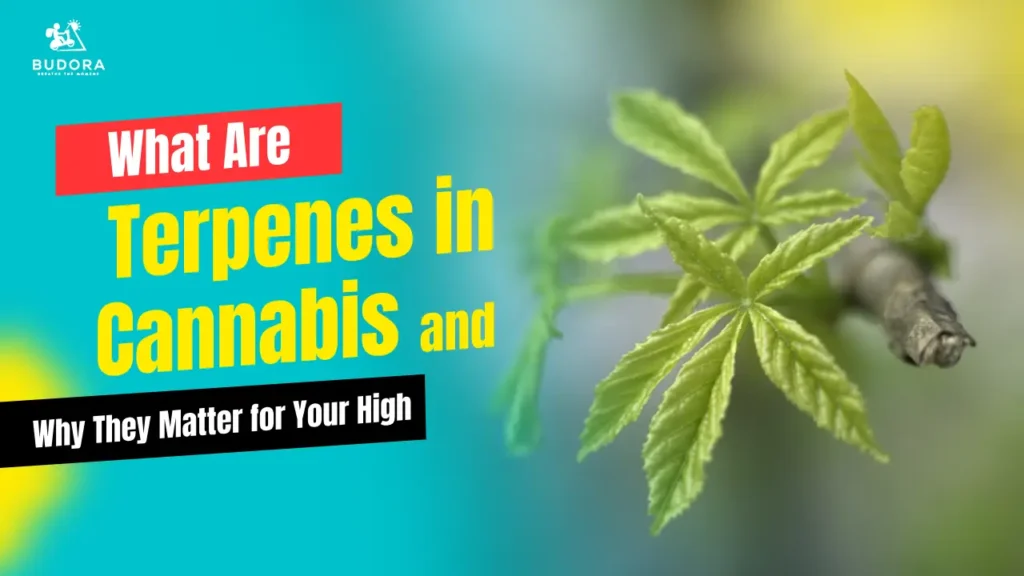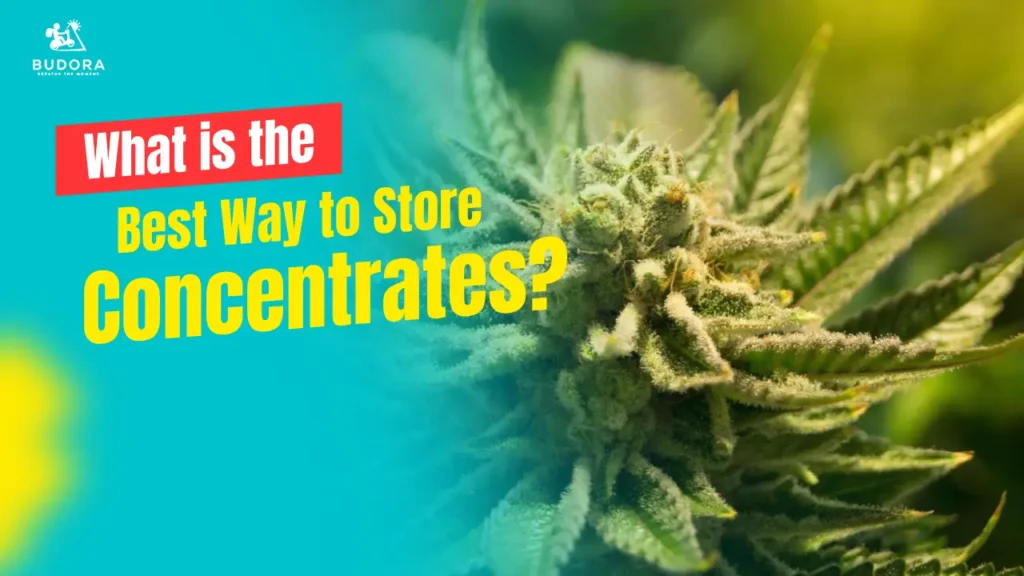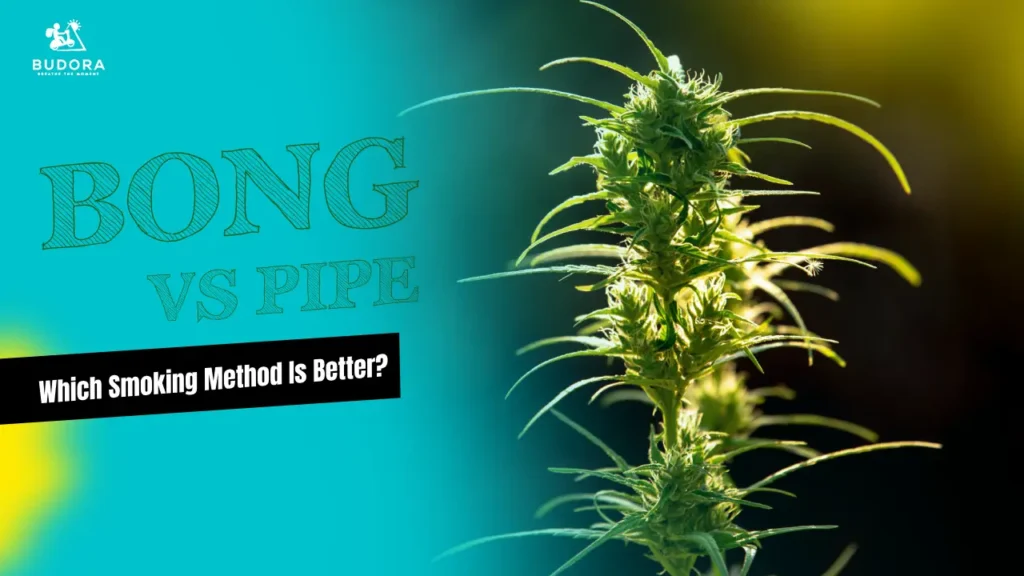Blog
Cannabis vs Pharmaceuticals: Exploring a Natural Alternative
- Budora Team
- No Comments
- Cannabis WeedBlogs
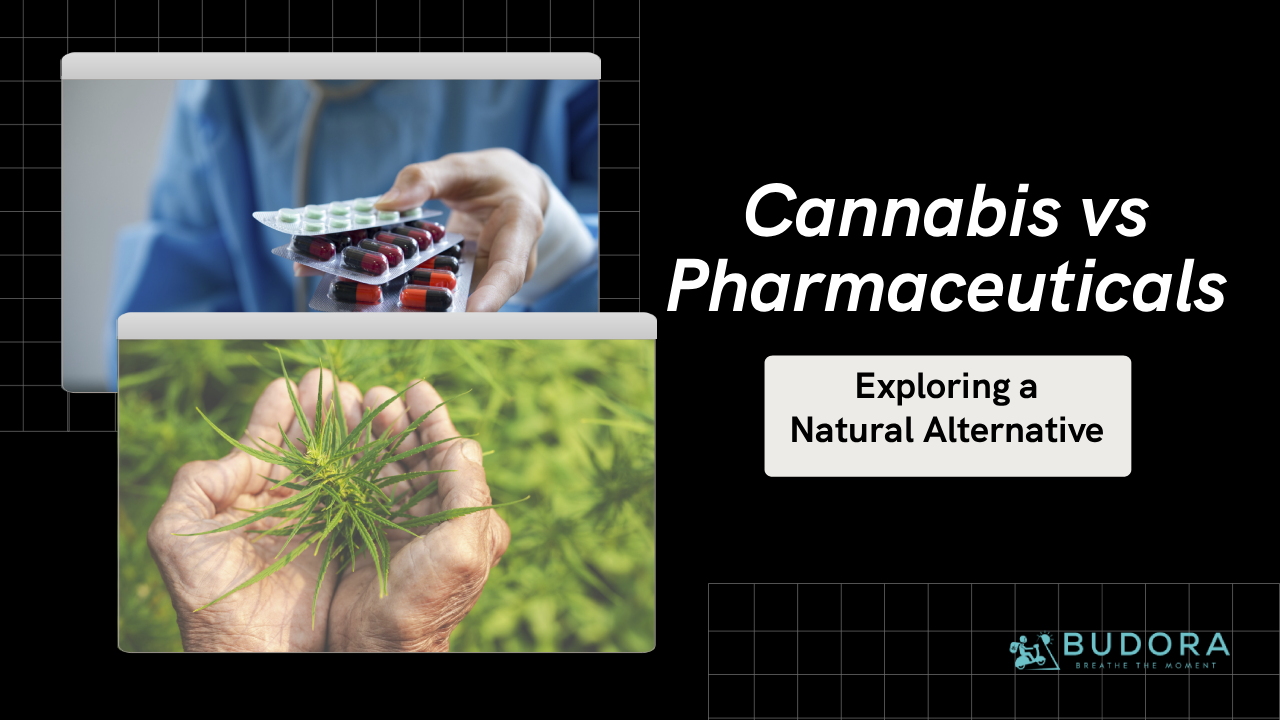
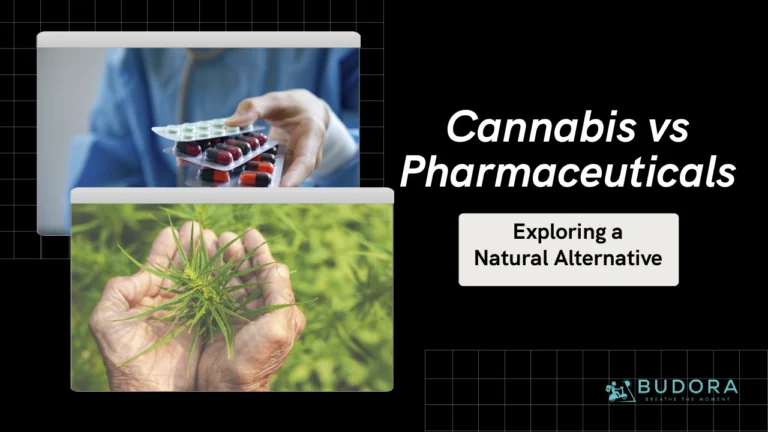
The debate over cannabis vs pharmaceuticals is heating up as more people search for natural, effective solutions for health issues. With rising concerns about addiction, harsh side effects, and overprescription of synthetic drugs, cannabis is gaining recognition as a powerful alternative. This article dives deep into why cannabis is being considered a substitute for prescription drugs, its benefits, comparisons, and safety profiles.
Key Points
- Cannabis is plant-based, while pharmaceuticals are often chemical-heavy, with higher risks of long-term side effects.
- Cannabis side effects vs pharmaceutical side effects show cannabis is milder, less addictive, and virtually non-lethal.
- Many patients use cannabis for chronic pain instead of pharmaceuticals, reducing dependency on opioids.
- Cannabis for inflammation vs pharmaceutical anti-inflammatories offers safer, long-term options.
- While not a cure, cannabis for cancer treatment vs chemotherapy drugs improves appetite, reduces nausea, and eases pain.
Why People Are Shifting Toward Cannabis
Pharmaceuticals dominate modern healthcare, but they often come with risks. From opioids causing dependency to anti-inflammatories damaging the stomach lining, people are realizing the cost of synthetic drugs isn’t just financial—it’s about long-term health.
Cannabis , in contrast, is natural, versatile, and has been used for thousands of years in traditional medicine. With new research and legalization in many countries, cannabis is no longer just a cultural symbol—it’s a legitimate medical option.
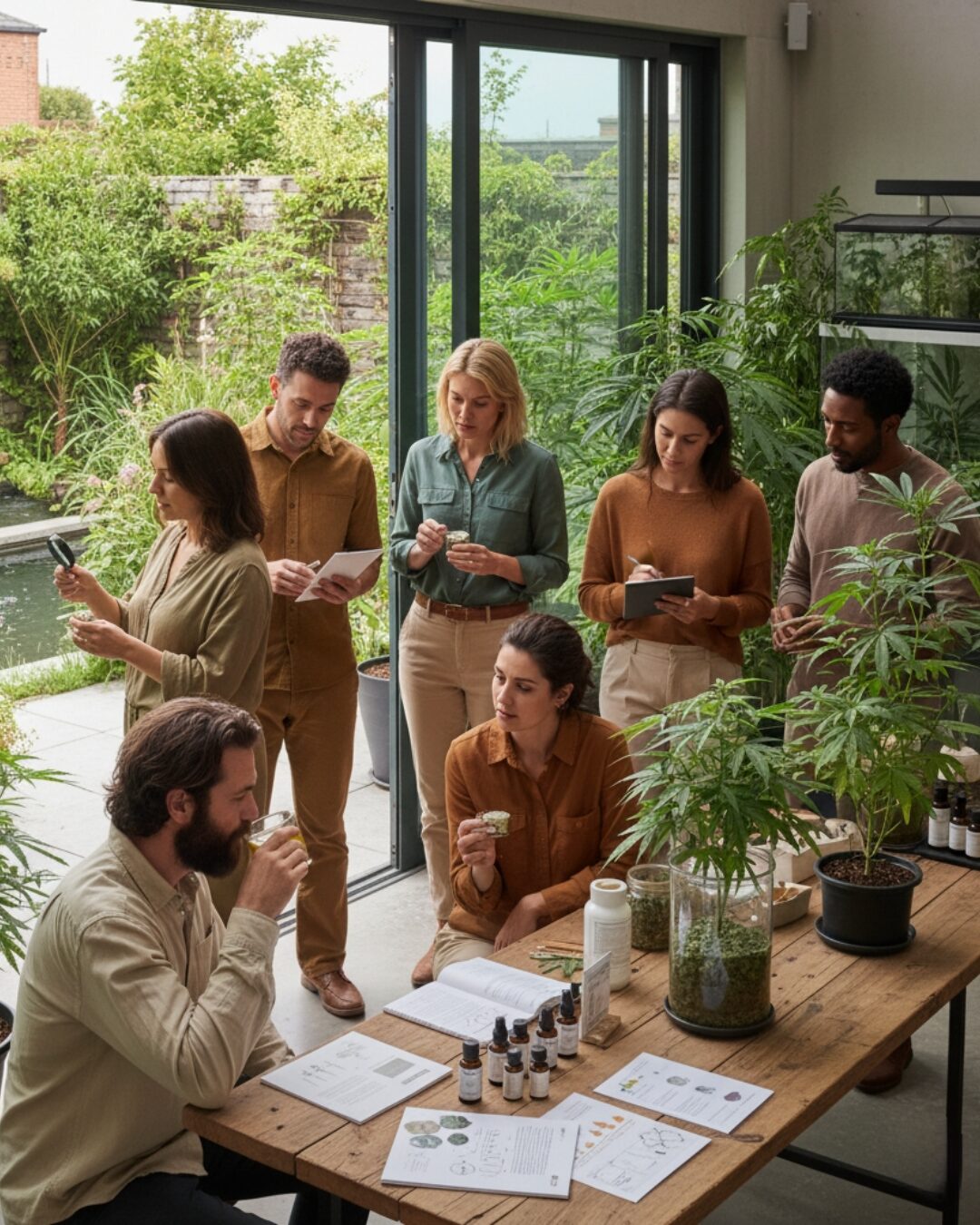
Cannabis Side Effects vs Pharmaceutical Side Effects
When comparing cannabis side effects vs pharmaceutical side effects, the differences are stark:
Whether using indica strains known for relaxation or sativa strains associated with energy and focus, the most common side effects are relatively mild. These include slight dizziness, dry mouth, increased appetite, and temporary short-term memory effects.
nausea, gastrointestinal damage, liver toxicity, hormonal disruption, cardiovascular risks, and potential for overdose.
In fact, studies show that over 100,000 deaths each year in the U.S. are linked to pharmaceutical side effects, while fatal cannabis overdoses are virtually nonexistent.
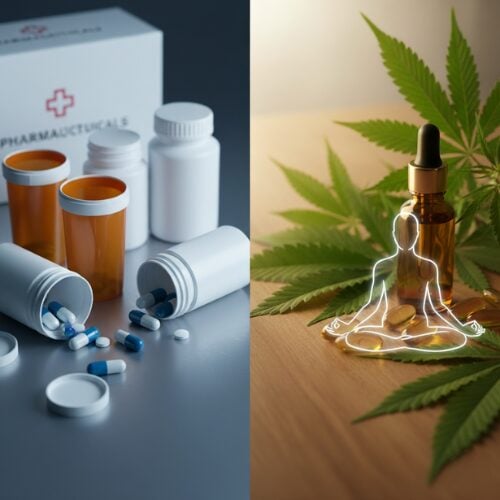
Cannabis as a Substitute for Prescription Drugs
- Painkillers: Patients with chronic pain are switching from opioids to cannabis, including potent concentrates that deliver targeted relief, reporting fewer side effects and a better quality of life.
- Sleep aids: Instead of sedatives that cause grogginess and dependency, cannabis—whether in flower, edible, or concentrate form—offers natural sleep improvement.
- Anxiety medications:Cannabidiol (CBD) , a non-psychoactive compound, shows promise in reducing anxiety without addiction.
Case in point: A 2017 survey published in Cannabis and Cannabinoid Research found 97% of patients reported decreasing their use of prescription drugs after starting medical cannabis.
Medical Marijuana vs Opioid Medications
The opioid crisis has highlighted the dangers of synthetic painkillers. Medical marijuana vs opioid medications shows a sharp contrast:
Opioids
Highly addictive, with thousands of deaths annually from overdose.
Cannabis
Non-lethal, with pain-relieving properties that target neuropathic and chronic pain.
States that legalized medical cannabis reported a 25% reduction in opioid overdose deaths, proving its potential role in curbing one of the worst pharmaceutical epidemics.
Cannabis for Chronic Pain Instead of Pharmaceuticals
Chronic pain patients are often trapped in cycles of prescription pills. Choosing cannabis for chronic pain instead of pharmaceuticals provides:
- Natural pain management with fewer risks.
- Non-addictive relief compared to opioids.
- Potential for long-term use without cumulative organ damage.
Athletes, veterans, and cancer patients have all reported improved outcomes using cannabis therapies.
Natural Cannabis vs Synthetic Drugs
The debate of natural cannabis vs synthetic drugs boils down to one question: would you rather take something made in a lab with dozens of side effects, or a plant-based remedy with centuries of safe use?
Pharmaceuticals often involve:
- Harsh chemicals.
- Patent-driven production rather than patient-driven solutions.
- Dependence on lifelong prescriptions.
Cannabis, however, provides a holistic and natural alternative that works with the body’s endocannabinoid system, restoring balance without the toxic load.
Cannabis Drug Interactions: What to Know
While cannabis is generally safe, it’s important to understand cannabis drug interactions. Some pharmaceuticals, such as blood thinners or sedatives, can interact with cannabis, intensifying or reducing effects. This applies whether someone is using an indica , sativa , or hybrid strain . Patients should always consult a doctor before mixing treatments.
Cannabis for Cancer Treatment vs Chemotherapy Drugs
One of the most talked-about comparisons is cannabis for cancer treatment vs chemotherapy drugs.
Chemotherapy
Effective at killing cancer cells, but often destroys healthy cells too, causing hair loss, nausea, fatigue, and immune suppression.
Cannabis
Not a cure, but it eases nausea, stimulates appetite, reduces pain, and improves quality of life during treatment.
Some studies even suggest cannabinoids may have anti-tumor properties, though more research is needed.
Cannabis Safety Compared to Pharmaceuticals
When analyzing cannabis safety compared to pharmaceuticals:
- Cannabis is non-lethal and far less addictive than most prescription drugs.
- No recorded deaths from cannabis overdose exist, while pharmaceuticals cause hundreds of thousands annually.
- Long-term cannabis use is safer than chronic use of NSAIDs or opioids.
This safety profile makes cannabis a compelling alternative for patients who want effective treatment without high risk.
Cannabis for Inflammation vs Pharmaceutical Anti-Inflammatories
Chronic inflammation is at the root of many diseases. Comparing cannabis for inflammation vs pharmaceutical anti-inflammatories:
- Pharmaceuticals: NSAIDs like ibuprofen can cause ulcers, kidney damage, and heart problems.
- Cannabis: Cannabinoids like CBD have shown strong anti-inflammatory effects without harming vital organs.
This makes cannabis a gentler option for arthritis, autoimmune disorders, and sports-related injuries.
What Matters Most
The conversation around cannabis vs pharmaceuticals is reshaping modern healthcare. Cannabis offers safer, natural solutions for pain, inflammation, anxiety, and even cancer treatment support. Compared to synthetic drugs, cannabis is less addictive, less harmful, and often more effective for long-term well-being.
FAQs on Cannabis vs Pharmaceuticals
Is cannabis safer than pharmaceuticals?
Yes. When comparing cannabis safety to pharmaceuticals, cannabis has a significantly lower risk of addiction, overdose, and long-term organ damage.
Can cannabis replace opioids for pain management?
Many studies support medical marijuana vs opioid medications. Patients often find relief with fewer risks, though medical supervision is recommended.
What are the risks of mixing cannabis with prescription drugs?
Cannabis drug interactions can occur, particularly with sedatives, blood thinners, or antidepressants. Always consult a doctor.
How effective is cannabis for inflammation compared to NSAIDs?
Research supports cannabis for inflammation vs pharmaceutical anti-inflammatories, with cannabinoids providing strong relief and fewer side effects.
Does cannabis help cancer patients better than chemotherapy?
While cannabis cannot replace chemotherapy, cannabis for cancer treatment vs chemotherapy drugs shows that it can greatly improve comfort and quality of life during treatment.
Like this article?

Budora Team
OTHER ARTICLES YOU MAY LIKE

